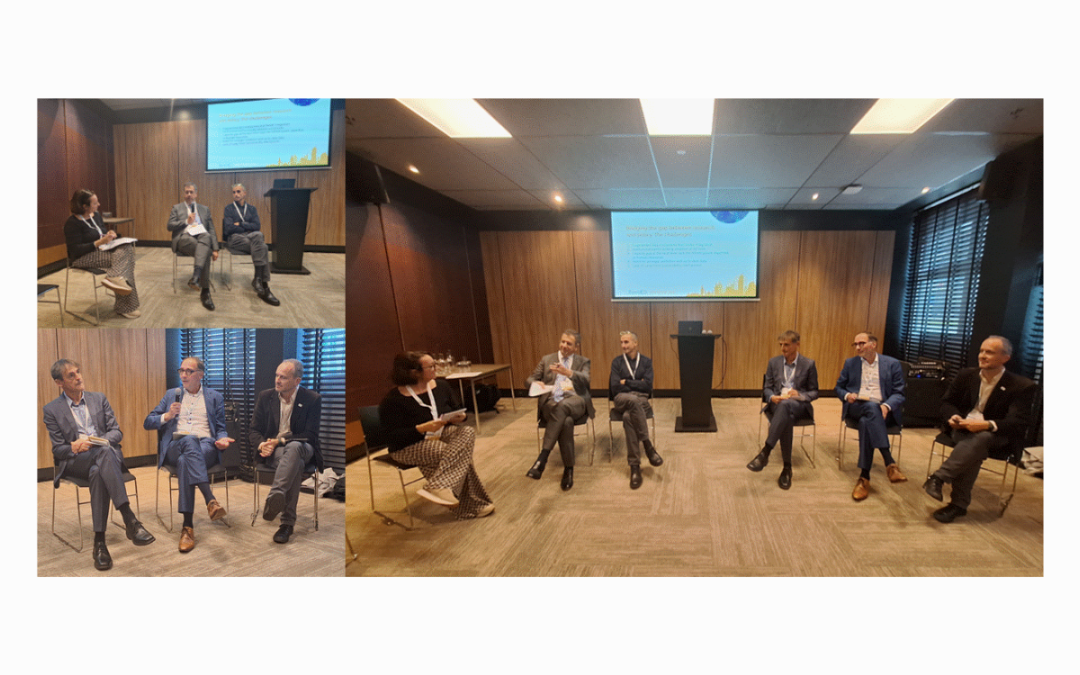On 13 October 2025, SDGs-EYES organised a policy event titled “Monitoring SDGs to Protect Citizens from Climate Risks” at the EuroGEO Workshop 2025 in the Netherlands. This session explored how Earth Observation (EO) data can support sustainable development and protect citizens from climate-related risks such as wildfires and heatwaves.
The event commenced with presentations from the project team, where the project was introduced with some of its services (forest fires, heat-health risks). The co-design approach was illustrated, with successful examples on how user consultation and iterative design has made the service more usable and policy relevant.
The panel discussion was chaired by Dr. Antonella Passani (T6 Ecosystems) and brought further insights into the use of EO in policy making. Panel members came from the European Commission’s Directorate-General for Research and Innovation (DG RTD), the EC Joint Research Centre (JRC), the Disaster Risk Management Unit of the European Commission Joint Research Centre, the Netherlands Space Office (NSO) and EARSC. The panel indicated that the project is seen as a nice example of the use of Copernicus data for risk management.
Panellists were invited to discuss some of the challenges related to project uptake, especially in the field of policy making. One challenge is related to the lack of continuous collection of in-situ data, and large differences between countries in this. Also, the limitation of project duration and unclarity of who will take it further beyond project lifetime, was underlined. Co-design was flagged as a key to success and as part of the co-development process, attention should be paid on who will pay for the future services.
An example raised on opportunities on the use of EO for policy support is the Common Agricultural Policy (CAP), where Sentinel data are used to provide information on which crops are grown. This is supporting the farmer’s reporting, earlier done manually. The role played by regulation in pushing for the use of EO was highlighted. An important note raised was that the role of EO should not be put as a central one, but rather as part of the data supply, and it can support as gap-filling. For the middle to longer term, a lot of new sensors are coming up, enhancing operational capabilities. Ambassadors are needed to better illustrate the capabilities.
The need for investment in a better communication about the value of EO was raised. In addition to communication, the audience added that the political will to be accountable to protect people is important. Sometimes a lot of data exist, but it is not used (institutional inertia), more courage would be needed!
The event concluded with Dr. Passani delivering closing remarks, acknowledging the important reflections provided by the panellists and the audience.

